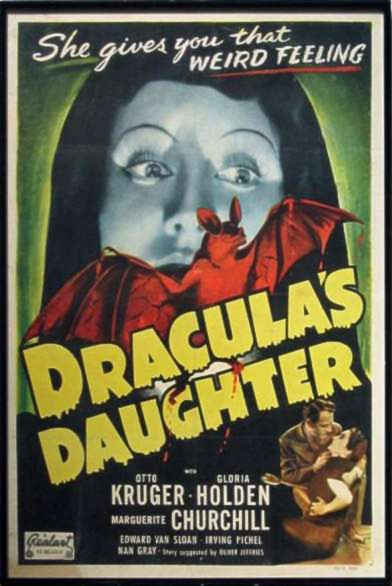Blogging Alex Raymond’s Flash Gordon – Part One: “Flash Gordon on the Planet Mongo”
Alex Raymond created Flash Gordon for King Features Syndicate to compete with the successful science fiction strip, Buck Rogers in the 25th Century. Raymond’s creation was decidedly more space fantasy than science fiction, combining elements borrowed from Edgar Rice Burroughs, Sax Rohmer, Alexandre Dumas, and Anthony Hope to great effect. Flash Gordon debuted January 7, 1934 with the strip, “Flash Gordon on the Planet Mongo” which would be serialized each Sunday through April 15, 1934.
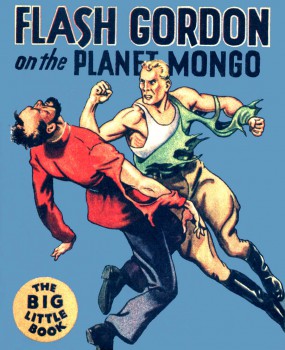 The strip kicked off with an exciting documentary-style depiction of an unforeseen catastrophe assailing our world. An unknown planet mysteriously appears in our solar system and is hurtling rapidly toward Earth. Destruction seems unavoidable. We are quickly introduced to a scientist, Dr. Hans Zarkov who is rapidly completing a rocket ship which he plans to man on a suicide mission to try and divert the oncoming planet from Earth’s trajectory.
The strip kicked off with an exciting documentary-style depiction of an unforeseen catastrophe assailing our world. An unknown planet mysteriously appears in our solar system and is hurtling rapidly toward Earth. Destruction seems unavoidable. We are quickly introduced to a scientist, Dr. Hans Zarkov who is rapidly completing a rocket ship which he plans to man on a suicide mission to try and divert the oncoming planet from Earth’s trajectory.
“Flash” Gordon is a Yale-educated world-renowned polo player (I’m sure we can all name a handful of world-renowned polo players). He and a young woman named Dale Arden are the only known survivors of a plane struck down by a meteor heralding from the approaching planet. Flash and Dale parachute just outside of Dr. Zarkov’s observatory. Paranoid from overwork, Zarkov pulls a gun on the startled plane crash survivors and forces them to accompany him on his suicide mission to space. The first installment ends with Zarkov’s rocket ship on a collision course with the rapidly hurtling planet.
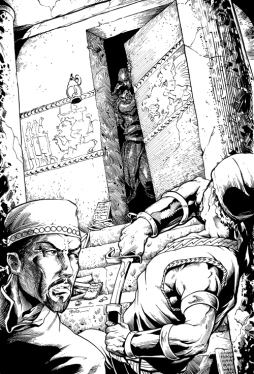 Howard Andrew Jones’ Dabir and Asim stories are some of the most popular we’ve published in Black Gate. His first novel featuring his 9th Century adventurers, The Desert of Souls, is now available
Howard Andrew Jones’ Dabir and Asim stories are some of the most popular we’ve published in Black Gate. His first novel featuring his 9th Century adventurers, The Desert of Souls, is now available 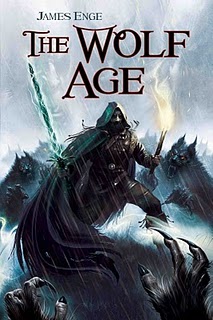 Locus Online reports that James Enge’s first novel Blood of Ambrose, part of his Morlock series, has been nominated for a World Fantasy Award for Best Novel of the Year.
Locus Online reports that James Enge’s first novel Blood of Ambrose, part of his Morlock series, has been nominated for a World Fantasy Award for Best Novel of the Year.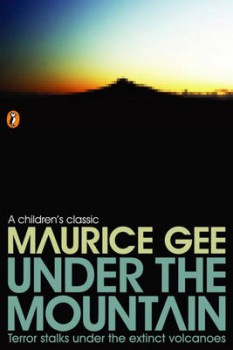 Under the Mountain (1979)
Under the Mountain (1979)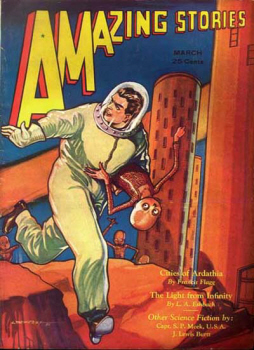 Newcomers to fantasy collecting may be unaware of the scope of pertinent and very useful information on the web, and particulary the resources assembled by members of the Yahoo Fictionmags Group. The terms “Big List,” “FMI,” “Galactic Central,” “Locus Index” and many others crop up without necessarily being understood. Fictionmags includes the authors of some of the most seminal and definitive reference works on magazine Science Fiction, Fantasy, and General Fiction. Not only is this material substantial and providing of answers to many questions, but it is also FREE to anyone conversant in accessing the internet.
Newcomers to fantasy collecting may be unaware of the scope of pertinent and very useful information on the web, and particulary the resources assembled by members of the Yahoo Fictionmags Group. The terms “Big List,” “FMI,” “Galactic Central,” “Locus Index” and many others crop up without necessarily being understood. Fictionmags includes the authors of some of the most seminal and definitive reference works on magazine Science Fiction, Fantasy, and General Fiction. Not only is this material substantial and providing of answers to many questions, but it is also FREE to anyone conversant in accessing the internet.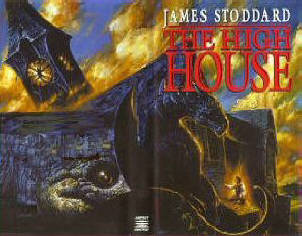 In 1998, American writer James Stoddard published his debut novel, The High House, and two years later followed it with a sequel, The False House. They’re two of the more remarkable fantasies I know.
In 1998, American writer James Stoddard published his debut novel, The High House, and two years later followed it with a sequel, The False House. They’re two of the more remarkable fantasies I know. 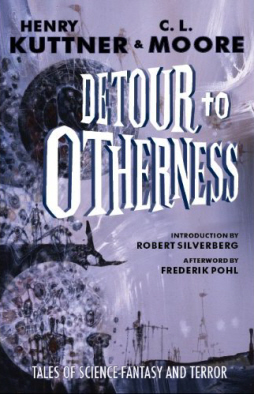 Yesterday’s deliveries here at the Black Gate rooftop headquarters yielded — among the usual bills, magazines, and spare parts for the plutonium-powered signal beacon — a review copy of Detour to Otherness, by Henry Kuttner & C.L. Moore.
Yesterday’s deliveries here at the Black Gate rooftop headquarters yielded — among the usual bills, magazines, and spare parts for the plutonium-powered signal beacon — a review copy of Detour to Otherness, by Henry Kuttner & C.L. Moore.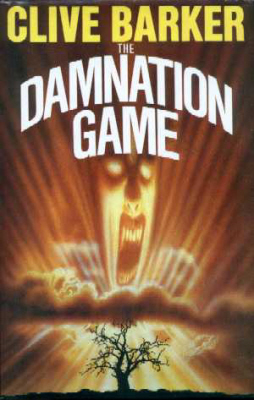 Collector prices are not always rational, as I think most collectors know. They can be fueled by hysteria. As many collectors have noticed, Clive Barker futures are very soft these days. Only the first British hardcovers of the Books of Blood and the British first of The Damnation Game have retained their value. There was a time, within a year or so of publication, when the advance galley of the American edition of Weaveworld could easily bring a hundred dollars. The last time I sold one, I bought it for $1.00 and got $10.00; but that was years ago. Nowadays you would be lucky to get five dollars for a copy. American firsts of Barker, or even galleys of same, are virtually worthless.
Collector prices are not always rational, as I think most collectors know. They can be fueled by hysteria. As many collectors have noticed, Clive Barker futures are very soft these days. Only the first British hardcovers of the Books of Blood and the British first of The Damnation Game have retained their value. There was a time, within a year or so of publication, when the advance galley of the American edition of Weaveworld could easily bring a hundred dollars. The last time I sold one, I bought it for $1.00 and got $10.00; but that was years ago. Nowadays you would be lucky to get five dollars for a copy. American firsts of Barker, or even galleys of same, are virtually worthless.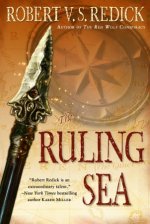 I’m on vacation, but for the one or two (and I’m probably overestimating) of you whose Saturday is not complete without something from me in this space, you can read my
I’m on vacation, but for the one or two (and I’m probably overestimating) of you whose Saturday is not complete without something from me in this space, you can read my 